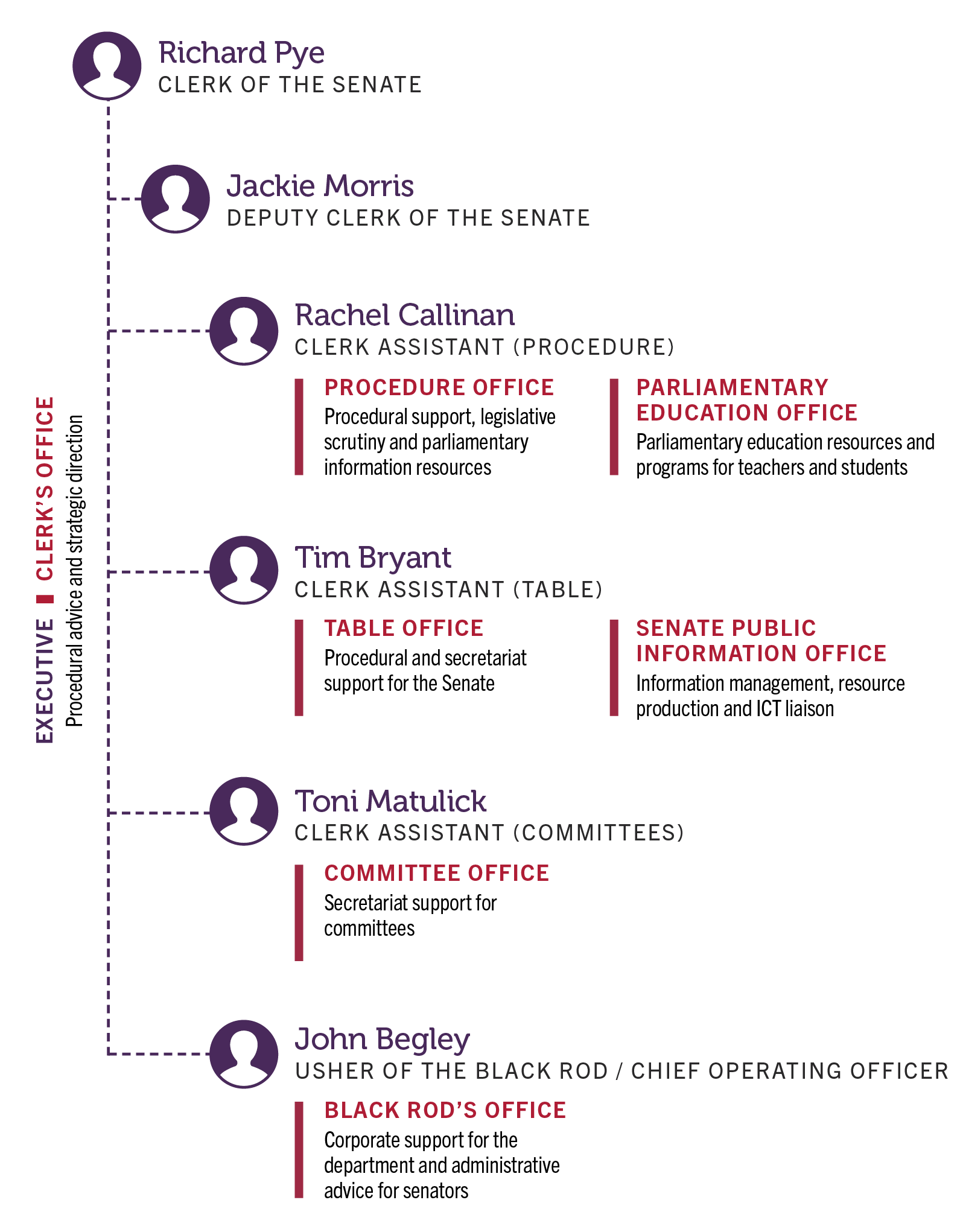The Senate secretariat
The Senate department provides secretariat support for the Senate and its committees, and advice and support to enable senators and others to participate in their meetings. Its work is substantially driven by the requirements of the Senate and senators.
The department provides services and undertakes activities in the following areas:
- advice about Senate and committee proceedings
- secretariat support for the Senate
- secretariat support for committees
- administrative advice and support for senators
- public information and parliamentary education
- capability, governance and accountability.
In undertaking its functions the department is responsible not to the government of the day but to the Senate and all senators, maintaining complete impartiality in serving equally senators from all political parties and independent senators.
Before turning to the department’s performance during 2020–21, this overview sets out the department’s organisational structure, program structure and objectives.
Organisational structure
The department is responsible to the Senate through the President of the Senate, Senator the Honourable Scott Ryan, who was elected to that position on 13 November 2017. The accountable authority for the department is the Clerk of the Senate, Mr Richard Pye, who was appointed to a 10 year term on 9 March 2017. Figure 1 shows the structure, roles and responsibilities of each office, and the department’s senior managers at the time of publication.
Figure 1 - Organisational structure

Outcome and program structure
The department is one of four departments of the Australian Parliamentary Service established under the Parliamentary Services Act 1999. We work collaboratively with our colleagues in the parliamentary service to support the parliament. To achieve this, the department adheres to the guiding objectives of the Strategic Plan for Parliamentary Administration, namely:
- providing services and support to enable the Houses and their committees to function effectively
- ensuring parliamentarians are supported in their work today and we are responsive to the future
- enhancing engagement in the work of the Parliament
- ensuring Australian Parliament House operates as a safe and accessible workplace and national institution, and
- enhancing our capability as an independent, non-partisan and professional parliamentary service.
In order to coordinate common and joint activities with the other parliamentary departments, the department participates on a range of interdepartmental committees. Chief among these are: regular meetings of department heads; the Parliamentary Administration Advisory Group; the Security Management Board; the Parliamentary ICT Advisory Board (and its subordinate ICT committees); and numerous bodies managing joint projects and endeavours such as the implementation of the Parliament’s Reconciliation Action Plan.
Within the broader role of the parliamentary service, the department’s planned outcome is to provide advisory and administrative support services to enable the Senate and senators to fulfil their representative duties and exercise the legislative power of the Commonwealth. The department delivers its outcome through a single program, which is described in the next chapter.
Reporting on performance
The next chapter contains the annual performance statements for 2020–21. It also contains a performance report for the seven offices of the department, each of which commences with a table reporting results against the criteria contained in the department’s portfolio budget statements and in office work plans.
A report on the department’s financial performance is included in the ‘Management and accountability’ chapter.